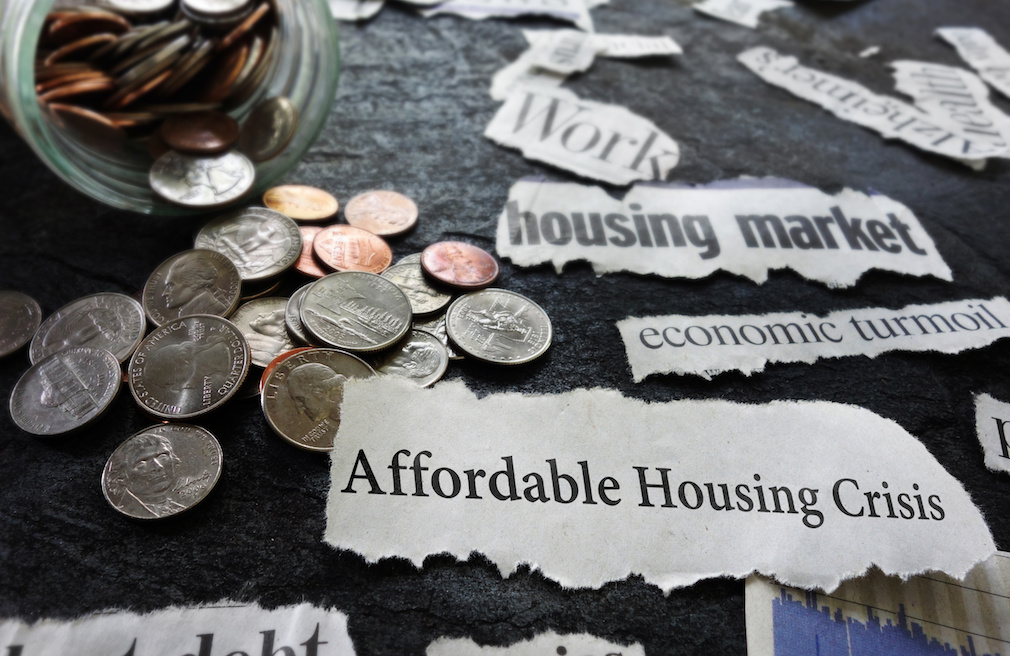The Trump administration has halted a $1.4 billion federal program intended to fund energy-efficient upgrades for affordable housing, leaving hundreds of projects in limbo, Bloomberg reported Tuesday.
The Green and Resilient Retrofit Program (GRRP), launched under the Inflation Reduction Act of 2022, was designed to help retrofit aging Department of Housing and Urban Development (HUD)-funded housing with modern, energy-efficient upgrades.
But the Trump administration has put the program under review, citing what it perceives to be misalignment with HUD’s core mission.
“HUD helps to ensure Americans have access to fair and affordable housing,” a department spokesperson told Bloomberg in a statement. “The previous administration’s energy efficiency crusade diverted valuable resources, including funding, from the department’s mission.”
The program, which had an initial allocation of nearly $840 billion from President Joe Biden’s Inflation Reduction Act, distributed nearly $1.5 billion since its inception for the reduction of greenhouse gas emissions, increased climate resilience, and increased energy and water efficiency for HUD-assisted multifamily properties in low-income communities.
Multiple reports earlier this month pointed to the program being dismantled entirely.
Affordable housing developers have said that the funding delays threaten numerous projects that rely on GRRP grants and loans to fill financing gaps.
Funding freeze hits Ohio project
In Ashtabula, Ohio, Jonathan Rose Companies reportedly planned to use a $10 million HUD loan to rehabilitate Ashtabula Towers, a 202-unit affordable housing complex.
The project, which is also backed by federal housing tax credits and private investment, aimed to modernize the property with energy-efficient appliances and solar power while ensuring its affordability for another 30 years.
But without a GRRP loan, the asbestos abatement and energy-efficiency upgrades are now in jeopardy.
“This isn’t just an investment by HUD,” Lauren Zullo, managing director of impact at Jonathan Rose Companies, told Bloomberg. “It’s really a way to catalyze private dollars into the project as well, in a way that makes them more energy efficient, hardens the asset, reduces costs, improves residents’ lives and brings jobs to the area.”
According to Bloomberg, HUD had committed GRRP funding to improve more than 30,000 rental units, including many in rural areas. But only 22 of the 270 awards had officially closed as of February, putting the remaining projects at risk.
Nonprofits, senior housing left in limbo
United Church Homes, a nonprofit housing provider, was awarded a pair of $3.2 million grants to improve energy efficiency in senior housing developments in Mississippi and Tennessee.
The funds were set to finance insulation upgrades, low-flow toilets, LED lighting and electrical improvements for two aging 40-unit buildings.
“The $3.2 million wasn’t really going to be enough to accomplish what we need to set these properties up for the next 30 years, but it was a substantial portion,” Kevin Deegan, vice president of corporate ventures at United Church Homes, told Bloomberg.
But in February, HUD terminated contracts with consultants who were helping recipients finalize their retrofit plans. United Church Homes told Bloomberg it’s had no communication from HUD on whether the funding will be restored.
“It’s frustrating to think that these funds may not appear simply because of the work we put into them and because they were already awarded,” said Ken Young, the organization’s president and CEO. “This is a vulnerable population, and not having funding puts their homes at risk.”
At Council Tower Senior Apartments in St. Louis, a planned renovation of the 227-unit affordable housing complex for older and disabled residents is also stalled. Developers were expecting an $18.2 million grant, and HUD had dispatched a consultant to assess energy efficiency needs and storm-resiliency improvements. But these assessments never arrived.
“We would love to at least have the reports from those assessments, even if GRRP doesn’t get unfrozen,” Zullo told Bloomberg. “At least we as owners could invest our own equity into those improvements.”
Advocates warn of long-term consequences
The program’s freeze could have broader implications for HUD’s budget and affordable housing preservation efforts, experts told Bloomberg
LeadingAge, an association of nonprofit aging services providers, estimated that at least 2,900 units of senior housing were awaiting more than $150 million in HUD funding.
“These grants weren’t meant to pay for complex renovations in their entirety,” said Linda Couch, LeadingAge’s senior vice president of policy and advocacy. “Instead, the GRRP awards help to make existing plans more sustainable and affordable, while GRRP loans help to assemble the necessary financing.”
Advocates told Bloomberg that cutting the program could ultimately cost the federal government more money, as energy-efficient improvements were expected to generate long-term savings on utility bills.
“Until we get clarity exactly on what’s going to happen with this program, we’re in a bit of a holding pattern,” Young said. “The needs aren’t going to go away.”





